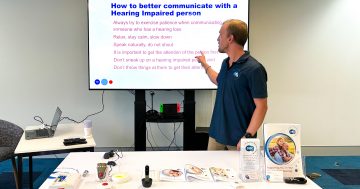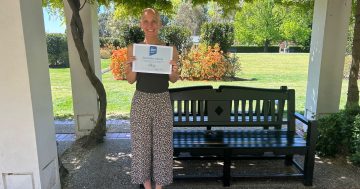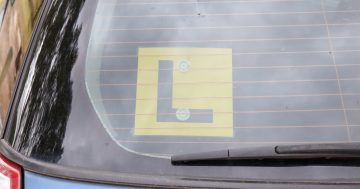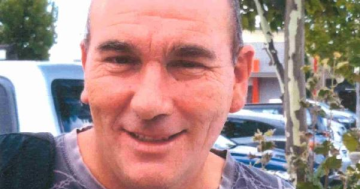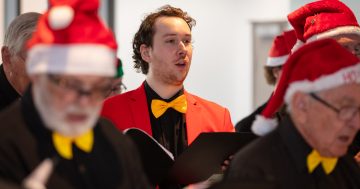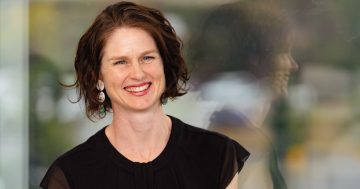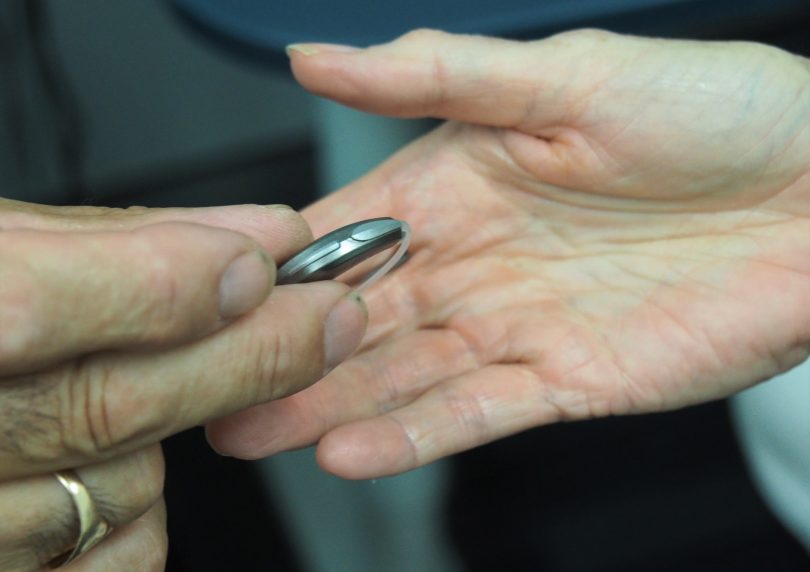
Cleaning hearing aids is a delicate task. Photo: Mark Paton.
Desley Rocks has been dealing with hearing issues from birth, progressively worsening to the point a cochlear implant is the only way she can experience sound today. But none of this has stopped her relentless drive to help hundreds of others dealing with the same predicament.
Today, she can be found cleaning hearing aids at nursing homes across the ACT, a cheery face greeting residents and staff alike.
Desley scraped through school – with her ever-faithful mum ever by her side – and then into the workforce, losing several jobs due to her condition.
“I worked at a pharmacist, but seeing as doctors would ring through for the scripts, and I couldn’t hear them properly, it was decided I was going to end up killing a few people,” she says.
From there it was on to a fashion store before she moved to Darwin and joined the public service, met her husband and started a family. It still wasn’t to be happily ever after yet, though.
“When my son was about seven years old, my hearing was getting worse and worse, and I had ear infections all the time from the humidity,” she says.
Her husband later took up a job at the Canberra Hospital, and the family moved here in 2000. Desley completely lost her hearing at the age of 48 but also became the first person to receive a cochlear implant here in the capital.
Desley is now the coordinator for the John James Foundation Hearing Aiders Program, inspired by a similar program in the UK, and locally introduced in 2010 by the ACT Deafness Resource Centre (DRC).
It was the first of its kind in Australia.
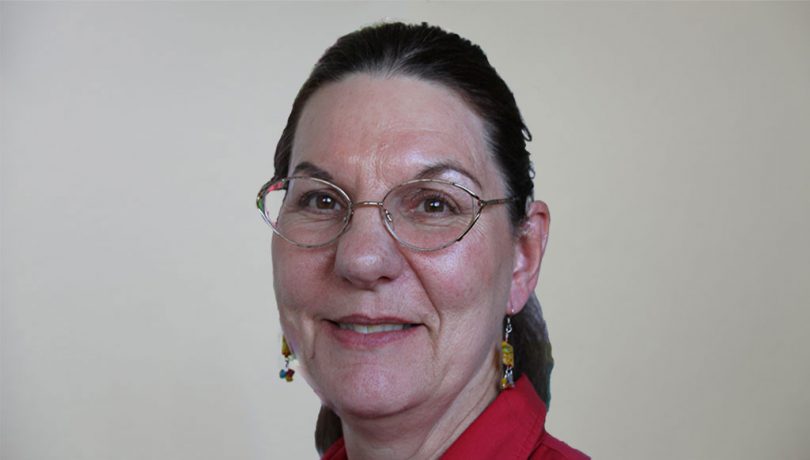
Desley Rocks, Canberra’s first cochlear implant patient who is giving back through the Hearing Aider’s Program. Photo: Supplied.
She cleans and maintains hearing aids for the residents in 17 Canberra nursing homes, but CEO Glenn Vermeulen says it doesn’t stop there.
“It enables the already stretched aged-care staff to focus on other areas of concern for their residents, ensuring a holistic approach to an individual’s care,” he says.
“Working hearing aids means residents can communicate better, leading to more meaningful social interaction with nursing home staff, fellow residents, friends and family.”
Initially, several volunteers were also on board, but these have dropped off over the years.
“It started with the former CEO recruiting volunteers and I was supposed to be the coordinator, but when you have volunteers, you have to have two or three people assigned to each nursing home in case one can’t work,” Desley says.
“It just didn’t work out.”
The program started on a grant from the ACT Government and is now partially funded by the John James Foundation. This covers most of Desley’s wage, but the program still has to charge a small fee to make ends meet.
“Every time we visit nursing homes, they can’t stop raving about what a wonderful program it is. But as soon as management hears there is a small fee associated with it, of $180 a month, they back out.”
Desley says nursing homes do maintain hearing aids as part of their normal care routine, but due to the size of the centres and the stretched resources, it can often fall by the wayside.
Desley’s received numerous commendations for her work because she goes the extra mile, doing a lot more than changing batteries. If she notices something isn’t quite right, she is often the first to alert staff so specialist care in the hands of a doctor or audiologist can be arranged.
“One of the biggest problems I find is that people are putting batteries in incorrectly, either the wrong size or the wrong way around.”
It isn’t just about the hearing aids, either. Glenn says providing humane and personal care makes all the difference.
“That’s the big thing. There’s a real ignorance of hearing loss out there.”
Visit the ACT Deafness Resource Centre for more information.












